Gaza Strip: Snapshot | January 2021
Monthly highlights
- Stored ammunition explodes in a house, resulting in dozens of civilian injuries and extensive damage.
- Intermittent escalations involving launching of rockets and airstrikes recorded.
- Increase in the movement of people via the Israeli-controlled Erez Crossing
- The Egyptian-controlled Rafah Crossing remains closed for a second consecutive month, with over 7,000 people registered to exit Gaza and thousands stranded outside.
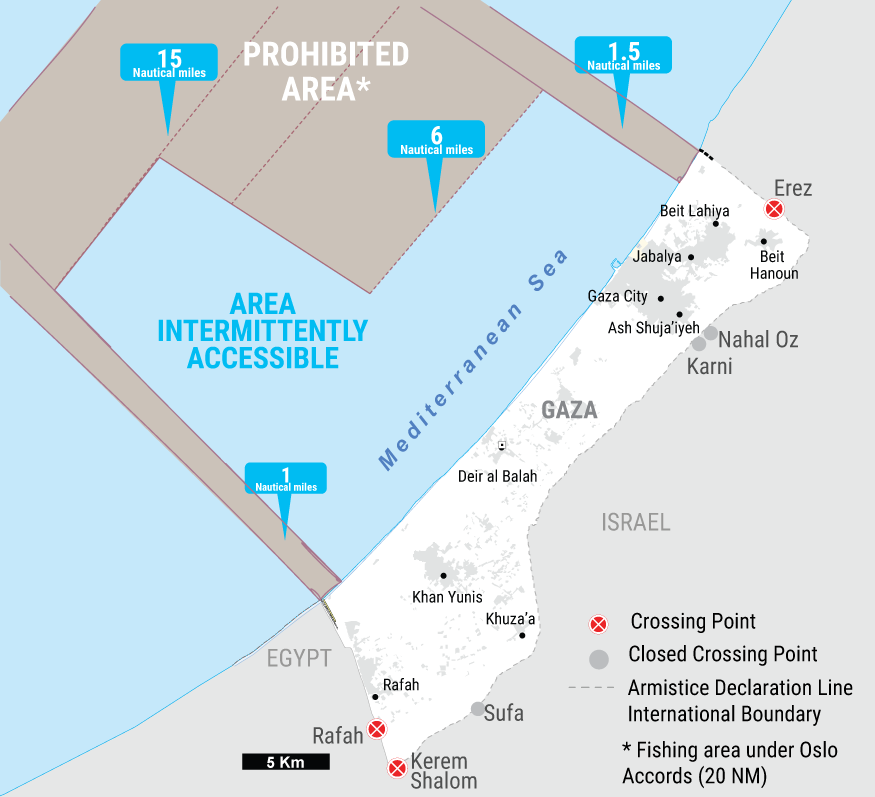
Protection of civilians and casualties
- Due to an explosion in a house in Beit Hanoun on 23 January, 47 people, including 19 children and 15 women, were injured. Some 172 houses, three schools, a hospital and a police station, were damaged. The house reportedly belonged to a member of a Palestinian armed group, who was storing explosives.
- On 18 and 19 January, three rockets were launched from Gaza into southern Israel, after they were reportedly activated automatically due to weather conditions; no damage was reported. The rockets were followed by Israeli air strikes and shelling, which damaged a house in the Al Maghazi refugee camp, causing one injury.
- On at least 84 occasions, Israeli forces opened warning fire towards Palestinians near Israel’s perimeter fence and off Gaza’s coast, presumably to enforce access restrictions, causing one injury. This is an increase of around 14 per cent compared with the monthly average of such incidents in 2020.
Comprehensive data on conflict-related casualties is available at OCHA’s interactive database.
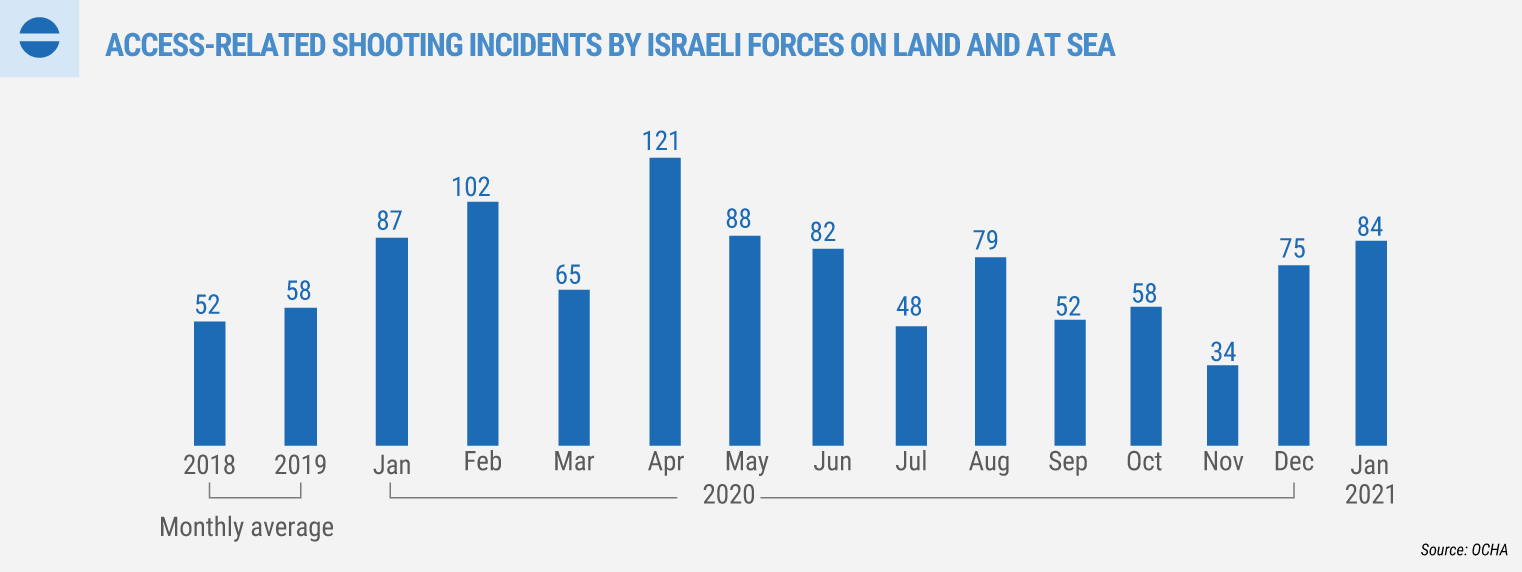
Access
- 3,284 people crossed via the Israeli-controlled Erez Crossing in both directions, mostly of whom were patients and their companions. This is an increase of 183 per cent compared with the monthly average between April and December 2020, but, only six per cent of the average in January-February, prior to the imposition of movement restrictions related to the pandemic.
- A total of 950 applications for exit permit by patients, referred to specialized treatment in the West Bank or Israel, were submitted to the Israeli authorities during the month, a slight increase compared to December. Only 76 per cent of the applications were approved, while the remaining were either denied or had received no answer by the time of the medical appointment.
- The Rafah passenger crossing controlled by Egypt remained closed throughout January for the second consecutive month, with only nine entries into Gaza exceptionally allowed. Over 7,000 people, including patients and students are registered to exit Gaza, while thousands of Gaza residents are reportedly stranded in Egypt and abroad.
- A total of 7,607 truckloads of goods entered Gaza via the Israeli-controlled Kerem Shalom Crossing and 887 via the Rafah crossing with Egypt, a five per cent decline and nine per cent increase respectively, compared with the monthly average in 2020.
- A total of 509 truckloads of goods were allowed by Israel to exit Gaza, of which 143.5 were sent to Israel, 361.5, mostly strawberries and vegetables, to the West Bank, and four to international markets. This is nearly 13 per cent above the amount recorded in December 2020.
Comprehensive data on Gaza crossings is available at OCHA’s interactive database.
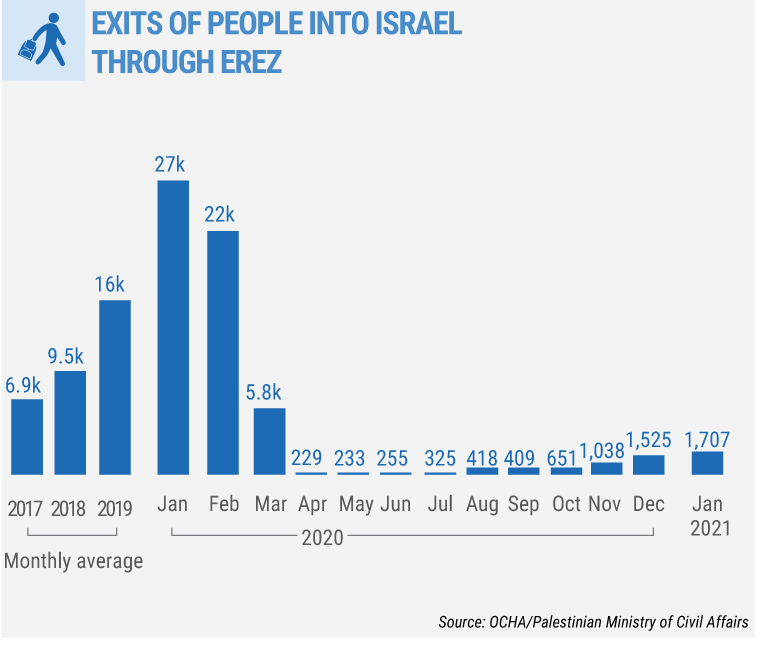
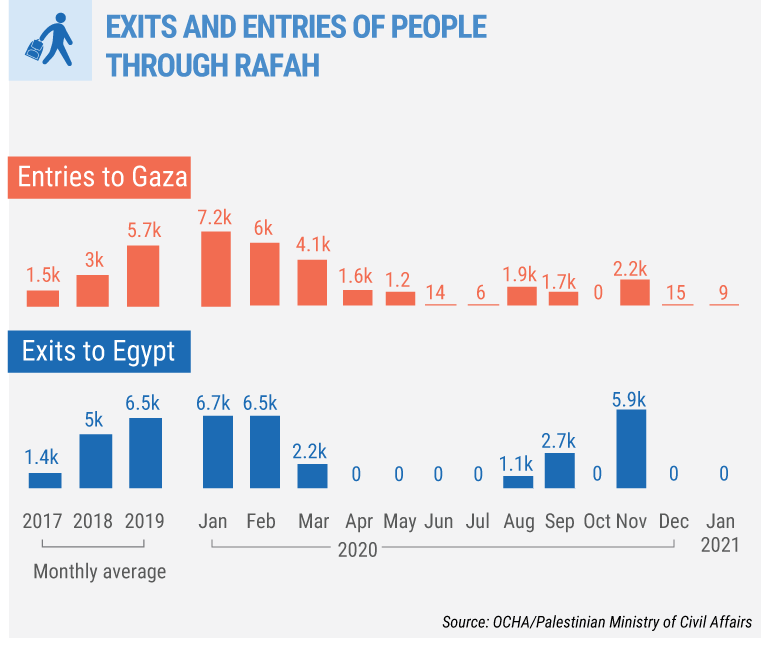
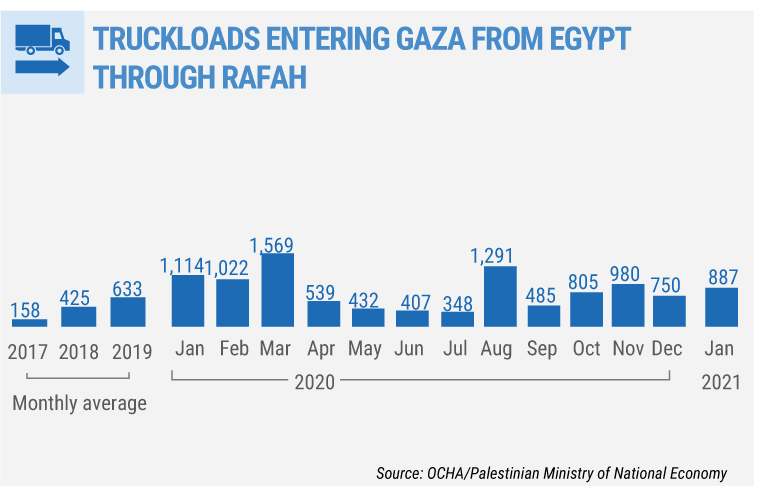
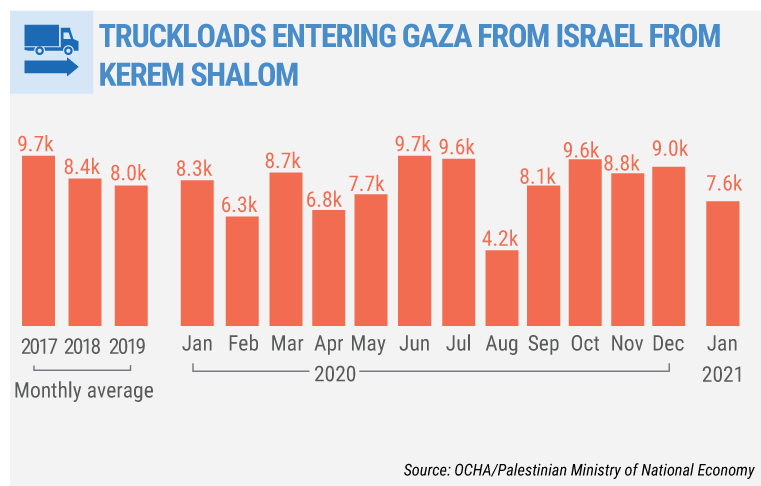
Services, Livelihoods and Shelter
- The average supply of electricity in January was 14 hours a day, the same as in the previous two months.
- A slight reduction in the volume of desalinated water produced by Gaza’s public water utility was recorded in January, compared with December.
- The pollution levels of wastewater discharged into the sea declined by about 20 per cent, compared with the previous month, the lowest recorded in years. This reduction is due to an improvement of the operational capacities of wastewater treatment plants, but still 30 mg/lt above the recommended WHO/PWA standard.
- The percentage of essential drugs at zero-stock level (supply for less than a month) declined from 45 per cent in December to 42 in January.
An interactive database on electricity supply in Gaza is available at OCHA’s website.











